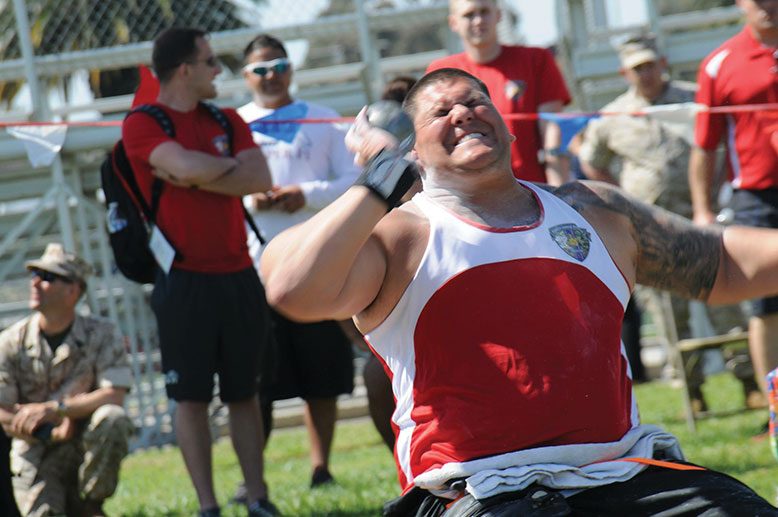
An Ernest Hemingway quote is tattooed on Michael Wishnia’s massive chest. “Certainly, there is no hunting like the hunting of man and those who have hunted armed men long enough and liked it, never really care for anything else thereafter.” Wishnia believed that—until he found the shotput.
For nearly 14 years, the Livingston native loved being a United States Marine. He led more than 700 patrols in Iraq and Afghanistan until a fateful mission in December 2011, when the concussive force of a combat explosion essentially turned the lower portion of his right femur to mush. His career as a Marine was over. Wishnia became depressed. Then, while rehabbing at Camp Pendleton in Southern California in early 2014, Wishnia was introduced to track and field.
“I was in a really dark place,” says the 34-year-old Wishnia, who requires a brace to walk. “Then Paralympic sport literally saved my life. I feel I have a purpose now.”
That purpose is Paralympic gold. Wishnia, a lacrosse and football player in high school, took quickly to the seated shotput. Less than six months after first picking up a shot, he won the 2014 U.S. Paralympic National Championships. He repeated in 2015 and won a third time in 2016, qualifying for this month’s Paralympic games in Rio de Janeiro.
For seated shotput, Wishnia hurls a 4-kilogram cast-iron ball (3.2 kilograms lighter than the shot used by Olympic competitors). To date, Wishnia’s personal-best throw is 14.3 meters, but he knows he’ll need to surpass 15 meters to win on the world stage. To increase his explosiveness and hone his mechanics, he trains three times a day, six days a week, in his adopted hometown of the Woodlands, Texas.
“Until two years ago, I had never thought about being an Olympic athlete,” he says. “But now, I definitely think I can win.”
